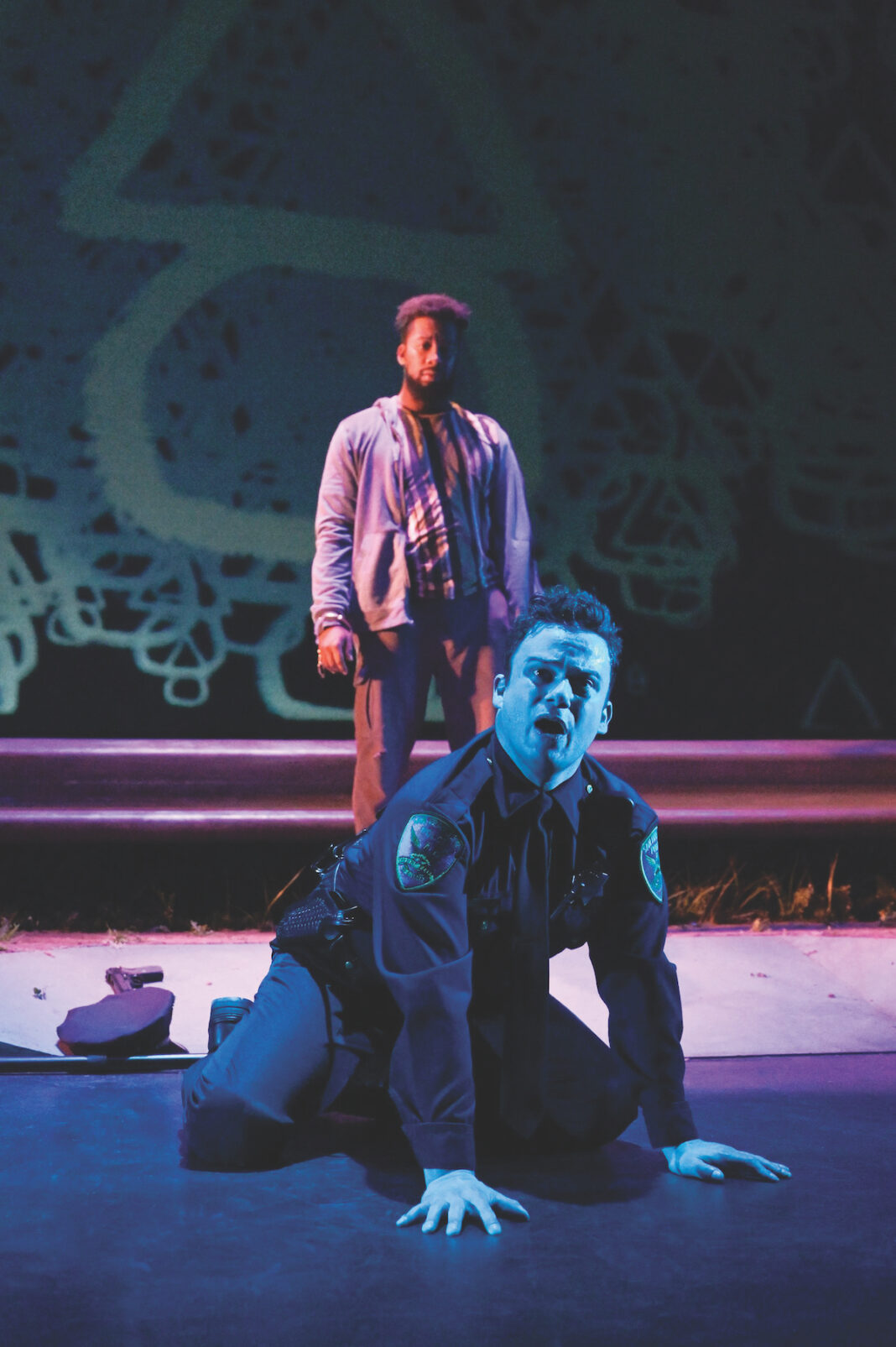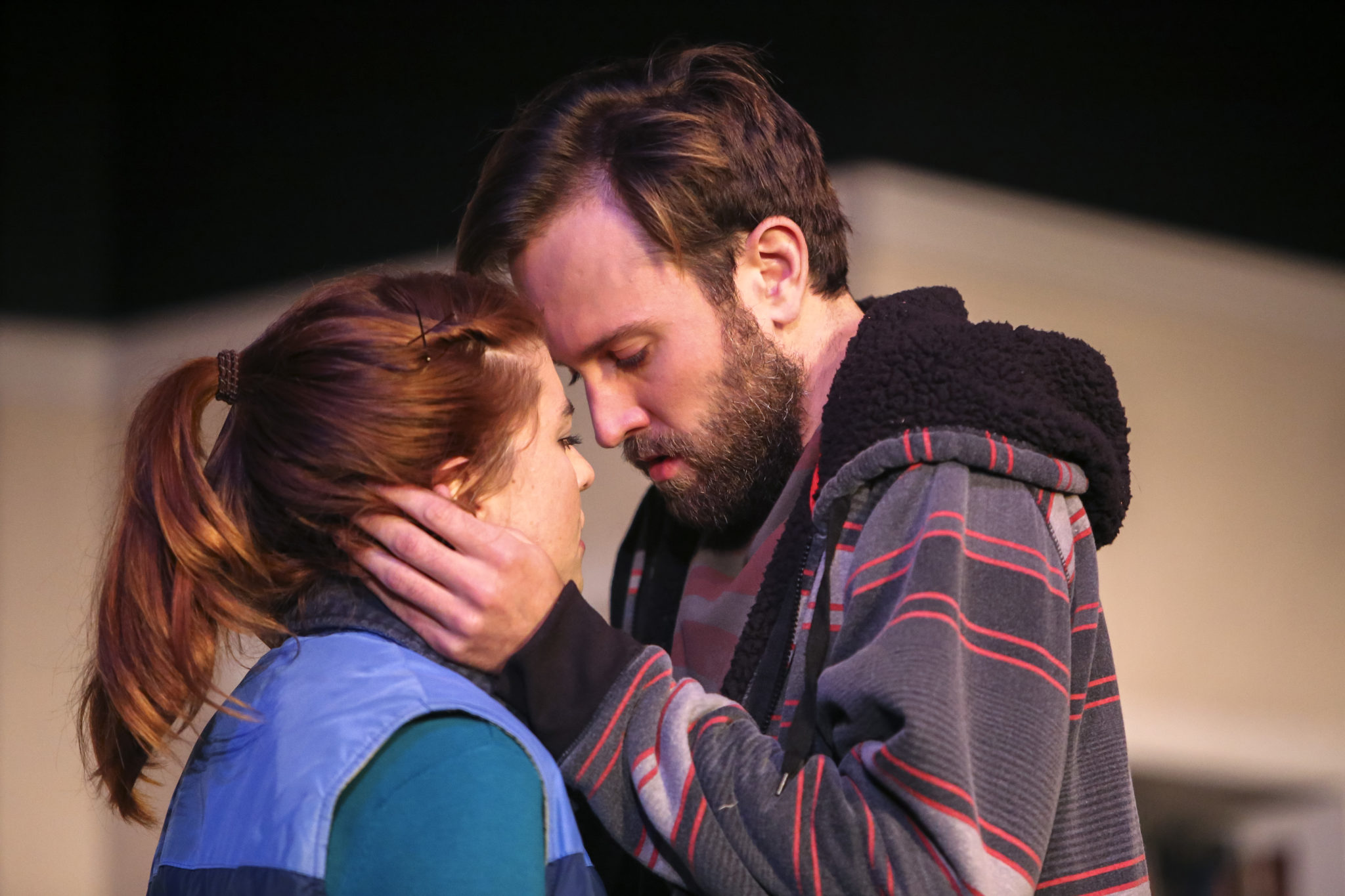Uncomfortable. Amused. Depressed. Angry. Confused. Challenged. Hopeful.
Those are all states of mind and emotions I experienced while sitting in the audience of Pass Over, the Antoinette Chinonye Nwandu play that’s in the middle of its West Coast Premiere run at the Marin Theatre Company. The show that reopened a pandemic-shuttered Broadway runs in Mill Valley through Feb. 27.
Moses and Kitch, two young Black men (Edward Ewell and LeRoy S. Graham III), are hanging out on a street corner in an unnamed urban city. Whether it’s a corner, indicating options, or a dead end, indicating the lack thereof, isn’t clear. What is clear is that these men have been here before, and they’re looking to get out.
They spend most of their time dreaming of what life will be like and of the things they’ll have when they reach the “promised land,” but like the characters from Beckett’s Waiting for Godot—a strong influence on the play—it’s clear that will never happen.
Or will it?
The glimmer of hope that the play concludes on is a modification from the play’s original 2017 ending, perhaps in response to Black Lives Matter and other social justice movements. Anyone seeking some insight into the necessity of those movements, particularly in regard to the relationship between the Black community and law enforcement, need only attend a performance of this Kevin R. Free-directed show.
We all know that queasy feeling people get when they look into their car’s rear view mirror and see a police car behind them and their mind leaps to the thought of an increase in their insurance premium, right? A devastating scene in the play, where the men recite a seemingly never-ending list of their friends, family and acquaintances who’ve been killed by the police, makes clear what a luxury it is to only think of the financial impact resulting from an interaction with law enforcement.
Nwandu’s exploration of the Black experience cleverly spans millennia while focusing on the here-and-now. As such, the characters’ dialogue is peppered with the “n” word to the tune of hundreds of utterances. Much like how your ear adjusts to the dialogue in an alternative-language film, the context in which the word is used and its meaning to the characters soon becomes clear.
Pass Over is a glimpse into a world that will seem foreign to most but, in reality, is the world in which too many live.









